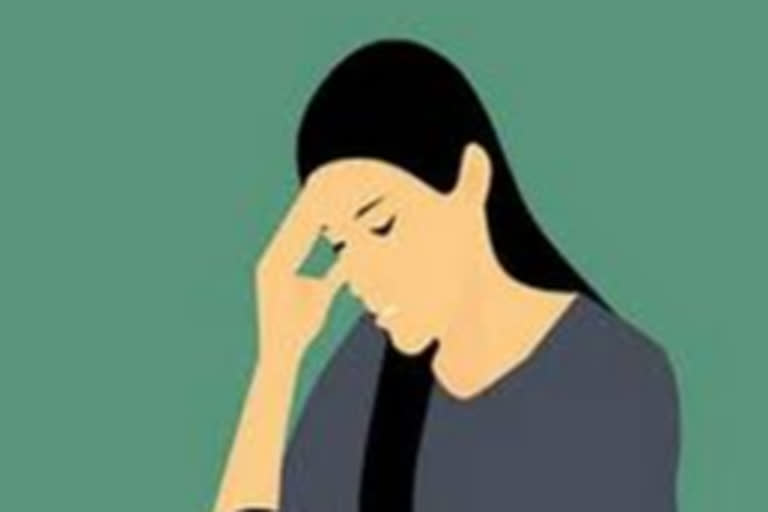Hyderabad: We have come a long way since we heard the word ‘Coronavirus disease 2019 (COVID-19)’ for the first time and how the whole world changed. Wearing masks and maintaining physical distancing is the new normal. In the absence of a vaccine, one of the most important strategies to slow down the pandemic is physical distancing.
Distancing is contrary to basic human nature and clashes with the deep-seated human instinct to connect with others. With lesser interactions with extended family and friends and no outings and family gatherings, the COVID-19 pandemic has become a major stressor for all of us.
Avoiding stress is not an option even for households free from the virus, particularly handling the fear and anxiety of contracting the virus, concerns about a close family member falling ill and the economic difficulties.
Adjusting to the current pandemic situation has been difficult for many, but far more challenging for children, elderly, those in quarantine, and the poor and vulnerable sections of the population such as daily wage workers and workers in the unorganized sector. Not to forget the healthcare workers battling the COVID-19 pandemic in the forefront.
It is therefore important to think about mental health as part of public health response to COVID-19 pandemic. Government efforts to manage COVID-19 outbreak should include key messages on both physical health and mental health. Public health campaigns which focus on maintaining physical distance should also emphasize the importance of being socially connected.
ALSO READ: How will India win COVID battle if pvt hospitals continue to overcharge?
We can take simple steps to cope with the stress of COVID-19 pandemic
Connect with others: Self-isolation and social distancing can bring up feelings of boredom and frustration. Connect with family and friends over a call, discuss happy events and seek support. Identify and avoid maladaptive coping methods such as spending a lot of time on the internet, being alone, etc
Stick to routines: Daily routines can help in maintaining both physical and mental health. Eat and sleep on time, exercise daily, resume your hobbies and engage in activities you enjoy. Always take adequate breaks.
Stay away from stressors: Constantly listening to COVID-19 news can be upsetting, one should balance anxiety-inducing news with positive and uplifting news of people getting cured and positive experiences of people who recovered from COVID-19.
Manage negative thoughts and feelings: Check if your thoughts are valid? true? helpful? necessary? kind? if the thoughts are not helping you to solve the problems at hand and instead increases your worries and anxieties it is better to not give too much importance to those thoughts. Allow the thoughts to pass without giving importance to them – like moving traffic, clouds. Observing thoughts without being judgmental helps in reducing negative emotions and feelings. Remember that the COVID-19 pandemic is not in our control but we can control our thoughts and actions.
Help children and adolescents to maintain their mental health by listening to them, acknowledging their difficulties, clarifying their doubts, reassuring them, provide support in resolving issues. Prevent excessive use of mobile and other devices, negotiate with them to ensure limited use of gadgets and discuss other activities as part of their daily routine.
ALSO READ: Even with steep rise in COVID-19 cases, govt must not shy away from testing
Make Plans: It is normal to worry about contracting the disease during a pandemic. Therefore, important to understand and know the symptoms of COVID-19, have emergency contacts and important phone numbers in an accessible place. Make a simple plan if you or family members become ill, which clinic/hospitals are nearby and who will help in that difficult time.
Manage Anxiety: Use anxiety reduction techniques such as abdominal (belly) breathing: sit in a comfortable position, relax your shoulders, close your eyes, inhale gently, lightly and slowly count to four, expanding your belly as you do; hold that breath for a count of two; slowly exhale through your mouth for a count of six. Practice this breathing for about 10 minutes.
Apart from the above mentioned individual level practices to cope with stress due to COVID 19, coping as a community is very critical as the pandemic is dragging on without a clear endpoint in sight. It is important to build community-level strategies to sustain coping behaviours and develop resilience to deal with the current pandemic and enhance preparedness. For any such initiatives, it is important to engage with communities, patients, their families and a range of other stakeholders, partners and sectors. Some steps to strengthen community resilience are:
Effective integration of mental health care services with primary health care so as to provide risk-stratified crisis counselling support to individuals and families directly affected by COVID-19.
Special efforts have to be made to reach out including individuals who lose their jobs, healthcare and essential workers, older adults, people with disabilities, and individuals in extended quarantine.
Explore innovations in digital health to develop culture-specific resilience strategies to maximise ways to direct prevention and clinical resources to those most at-risk for mental health and unmet basic needs.
Co-opt community-based organisations to conduct outreach through social mobilisation and communication strategies to promote resilience, and let people know when and where to seek help.
As it is evident that COVID 19 is going to have a long-lasting psychosocial impact on the society, community-based resilience-building efforts should be based on principles of social justice and empowerment and would require strong political will and action.
(By- Dr.Shilpa Sadanad, Dr.Nanda Kishore
Kannuri Department of Social and Behavioural Sciences, Indian Institute of Public Health, Hyderabad.)



